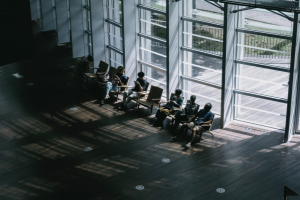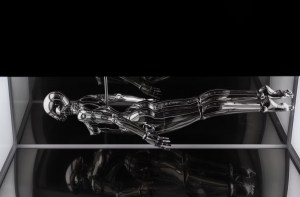For over 20 years, we’ve been critically (re)assessing our trend model – the Human Context Circle™ – updating, replacing and refining whenever new socio-cultural information emerges.
In (new) this column, we take a closer look at the shifts in socio-cultural needs, values, and behaviors that have made us change the model this year, ensuring it stays aligned with the ever-changing world around us. This week we’re sharing a key recent update: the evolution of our Millennials-focused trend from Optimistic to Disillusioned!
Which trend are we changing? Our Optimistic trend, part of our Millennials trends. The optimistic trend explained how despite growing up in the midst of monumental events such as 9/11 and a major economic crisis, Millennials were positive about the future. They inherited this optimistic mindset from their Babyboomer parents. Millennials felt like they could play a role in designing the future and see opportunities for positive change. Due to a time of relative peace they hoped that things like major geopolitical conflict and fascism would eventually become relics of the past and the modern world would keep moving towards a bright and better future…
What are we changing? We are changing the trend from ‘Optimistic’ to ‘Disillusioned’. For a couple of years now the statistics are no longer supporting Millennials’ optimistic view on the future. They grew up and despite doing what was expected of them (getting a degree and a career), they are struggling to reach the same milestones as generations before them. Their optimism towards their own financial future, and the economic outlook in general, has made way for pessimism.
Additionally, the world is not doing so well either. Decades after we identified global warming as a man-made problem, we have yet to come up with a constructive solution. And after a long period of relative peace (Pax Americana), there is currently a surge in geopolitical conflict and a concerning rise of authoritarianism in Western countries. Millennials’ positive outlook has proven naive and this is also reflected in their future optimism: only 1 in 4 Millennials worldwide thinks the overall social/political situation will improve in the next 12 months.
How does this manifest itself in society? Buying a house is difficult for Millennials and they are having fewer kids, and having them later. The geopolitical uncertainty leads Millennials to look for stability and hope to get the world back on track.
Are there already brands engaging with this new behavior/need/value? One brand that is clearly tapping into the need for stability is German brand Penny with their commitment to offer price stability by printing the prices on their packaging, or IKEA’s ambition to deflate their prices. While a brand that taps into hope and optimism is LG that has created a way to fill your social media feed with positive content instead of constant doomerism news.

Author
Douwe Knijff
Share the signal.











